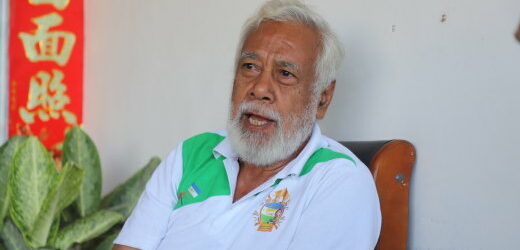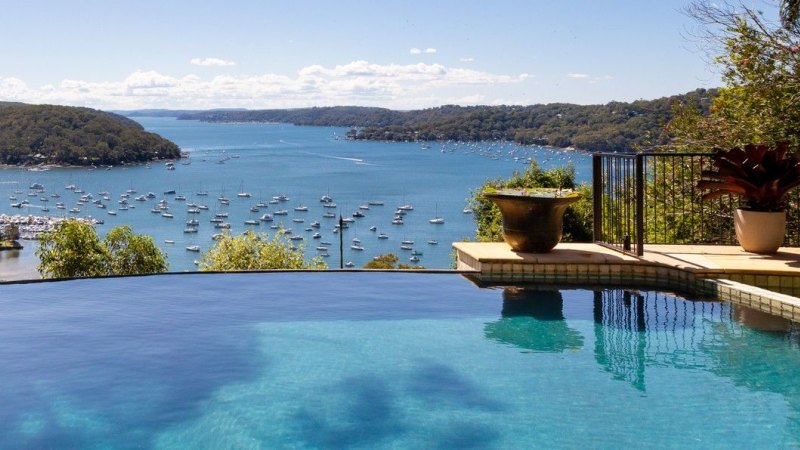Save articles for later
Add articles to your saved list and come back to them any time.
Suai, Timor-Leste: Timorese resistance hero and the country’s first president, Xanana Gusmao, has sent a blunt message to Australia: give it a chance to further develop its own gas industry and let the underdeveloped nation flourish.
Gusmao said if Australia backed the plan to allow Timor-Leste to pipe gas from the $71 billion Greater Sunrise fields in the Timor Sea, it would make amends for its “bad behaviour” in exploiting the smaller nation for decades.
Xanana Gusmao is campaigning to return as prime minister in Timor-Leste.Credit: Raimundos Oki
Leaders in Dili see the long-stalled Sunrise project as a future economic lifeblood of the underdeveloped young nation, which has been heavily reliant on natural resources since independence but is expected to exhaust its earnings from oil and gas in a decade.
The project has been held up amid political turmoil in Dili and doubts about the economic viability of an undersea pipeline to Timor-Leste, with joint venture partner Woodside Energy having preferred the processing of natural liquified gas to happen in Darwin.
Gusmao says the economic gains from processing the gas in Timor-Leste would benefit his country despite the fact it would receive less in royalties. Under the maritime boundary treaty, Timor-Leste is due 70 per cent of Sunrise royalties and Australia 30 per cent if the gas is piped to the South-East Asian nation. If it is piped to Australia, the royalties are split 80-20 towards Timor-Leste.
However, Gusmao has long maintained the plant must be built on Timor-Leste’s southern coastal area of Suai and, as he campaigns to return as prime minister in the May 21 election, said Canberra’s support would help settle historical grievances over both Australia’s approach to Indonesia’s takeover and its maritime boundary with Timor-Leste.
“I trust in this Labor government. Australia behaved very, very badly … and [this is] the best way for Australia to make us Timorese sure that it is a new future,” the 76-year-old told this masthead.
“I trust that this government, the Labor government, will make an action or a decision. We [will] reconcile [and] forget the past.”
The Australian-led military intervention helped secure Timor-Leste’s shift to independence in the violent aftermath of its United Nations-sponsored referendum in 1999.
But Gusmao indicated other rockier periods in relations had not been forgotten, including Australia’s signing in 1989 of the Timor Gap Treaty, which divided up the spoils of oil and gas in the Timor Sea with Indonesia. He also pointed to Australia’s withdrawal from the maritime boundary jurisdiction of the UN Convention on the Law of the Sea just before Timor-Leste’s independence was restored in 2002; as well as the 2005 CMATS Treaty, which set aside boundary claims for 50 years and which Gusmao believes Dili was forced into.
While the sea border dispute was eventually resolved in 2018, relations were also rocked by a spying scandal after the Australian Secret Intelligence Service bugged Timor-Leste ministerial offices in 2004 in a clandestine bid to gain an advantage in negotiations over resources in the Timor Sea.
“It is a reparation,” said Gusmao, who was prime minister between 2007 and 2015 but whose party has been in opposition in recent years. “I don’t say ‘apologise’. We don’t need [it].”
But he suggested Australia was morally obliged to endorse the piping of gas to Asia’s youngest nation, as it would be “another way to apologise for the bad policies” and for “exploiting the situation in Timor-Leste” after the Indonesian invasion of 1975.
“I believe that if I am the new prime minister we will have a good relationship with the [Australian] government,” said Gusmao, whose National Congress for Timorese Reconstruction (CNRT) party is bidding to reclaim power.
“We feel that it is time. I don’t know about Woodside because Woodside is not the government. But the government, I believe that they [will] come to the right [decision] and understand that they have to give us the right to develop ourselves.”
Timor-Leste President Jose Ramos-Horta spoke of his country’s ambitions on Greater Sunrise at the National Press Club in Canberra last year.Credit: James Brickwood
The Australian government last October named ex-Victorian premier Steve Bracks, a former adviser to Gusmao, as its special representative on Sunrise. Bracks has since travelled twice to Timor-Leste.
Bracks’ appointment followed a signal by Timor-Leste President Jose Ramos-Horta that his country could turn to China to invest in a pipeline if Australia and Woodside did not back one.
Asked about the potential for Chinese involvement if Australia and Woodside did not get on board with his country’s ambition for Greater Sunrise, Gusmao said: “I don’t raise this issue now. What I say is we will do it. From where [support for the pipeline will come], it will depend on negotiations when it is the right time.”
Beijing has an increasing presence in Timor-Leste. Chinese state-owned companies built the new Tibar Bay port outside Dili and a four-lane expressway along the south coast anticipating the gas project coming to fruition. China was also behind buildings such as the presidential palace and the defence and foreign affairs ministries, and last year won contracts to run the national electricity grid and to digitalise Timor-Leste’s radio and television services.
Supporters of Mari Alkatiri’s Fretilin party at a recent rally.Credit: Juliao Fernandes
Fellow prime ministerial candidate Mari Alkatiri warned against Timor-Leste using its strategically important location to get its own way.
“This is a very dangerous game,” said the Fretilin party secretary-general, who was Timor-Leste’s first prime minister and long-time political rival of Gusmao.
“We cannot get involved in global strategy, geopolitics. We are a very small country. I told it to the Chinese ambassador here in this room, and to the American ambassador. [I said] ‘Please, we need peace and stability to face a lot of [the] problems of our people’.”
Alkatiri, 73, said he also wanted to see gas from Greater Sunrise piped to Timor-Leste if economically feasible.
“I think Australia will understand us,” he said. “I believe Australia would like to have neighbours that flourish and not ones that are in economic and financial crisis. We need a good relationship and co-operation at all levels with Australia.
“Australia was the very first country, the only one, to formally recognise the annexation [by Indonesia], but ended up helping us to get freed from Indonesia. It took 24 years, more than 200,000 people died, but we ended up winning the friendship of Australia and Indonesia both. We need to keep it.”
Timor-Leste has a 56.56 per cent stake in Sunrise, Woodside owns 33.44 per cent and Japan’s Osaka Gas 10 per cent. Seventy per cent of the fields lie in Timorese waters.
While it is a commercial decision for the joint venture partners, leaders in Dili hope the Australian government can help facilitate the outcome they want.
Fretilin secretary-general Mari Alkatiri in his office in Dili.Credit: Raimundos Oki
Woodside has indicated it may be more open to the Timor-Leste gas option. It had agreed to a new study by the Sunrise joint venture that will “include evaluation of which option provides the most meaningful benefit for the people of Timor-Leste”, a company spokesperson said.
Woodside chief executive Meg O’Neill said at the Macquarie Australia conference in Sydney last week: “There are some technical questions that we need to get our arms around, particularly how you get a pipeline across the trench that lies between the field and Timor-Leste.”
“There’s going to be commercial questions around the development cost of taking the gas to Timor-Leste versus taking it to Darwin; then there will be questions around the social impact.
“At the end of the day we’ll rack up the numbers, we’ll rack up the risks. We’ll have a discussion within the venture [and] with the two involved governments on what’s the best way to proceed.”
A spokesperson for Australia’s Department of Foreign Affairs and Trade said Australia was “committed to the mutually beneficial and commercially viable development of Greater Sunrise”.
“The Australian government wants to see the development of Greater Sunrise in a way that supports the development of Timor-Leste and maximises the benefits to all parties,” the spokesperson said.
More stringent rules on new fossil fuel projects in Australia and changes in the taxing of offshore gas companies could work in Timor-Leste’s favour.
Get a note directly from our foreign correspondents on what’s making headlines around the world. Sign up for the weekly What in the World newsletter here.
Most Viewed in World
From our partners
Source: Read Full Article






